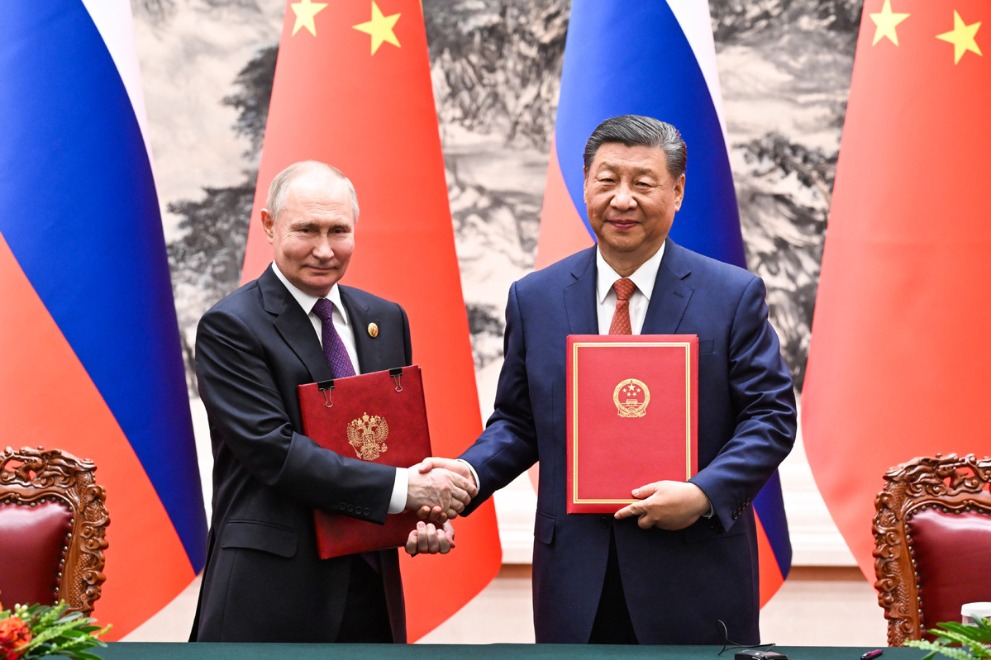Student bullying rises as schools remain shut for virus
By Gu Mengyan | chinadaily.com.cn | Updated: 2020-09-07 14:36
HONG KONG - A series of teen arrests in Hong Kong during the summer holiday has laid bare a rising trend of student bullying at a time when the COVID-19 pandemic has forced schools to suspend on-site classes.
Between late June and August, at least 22 underage students were arrested on suspicion of bullying, in many cases on suspicion of assault occasioning actual bodily harm.
For example, on July 27, a 13-year-old boy was beaten up in Tuen Mun by eight students aged between 13 and 15 from five different schools over a dispute over money.
Chan Kam-mun, neighborhood police coordinator at Tuen Mun Police Station, said that with on-site classes suspended, some teenagers could be found loitering and gathering on the streets at night, and given their delinquent tendencies, easily resort to violence when disputes happen.
As the officer in charge of promoting police-school communication in the district, Chan said as per established protocol, each time such a case is reported, the station's school liaison team will meet school representatives and vulnerable students and may give anti-bullying talks to raise awareness.
According to a 2017 report by Organization for Economic Cooperation and Development, 32.3 percent of secondary students in Hong Kong reported being bullied for at least a few times a month, the highest incidence recorded among 54 countries and regions surveyed.
In Aberdeen, three girls aged between 13 and 14 and an 18-year-old man were arrested on Aug 29, after one of them was filmed slapping a 13-year-old girl in school uniform. The video, which has since gone viral, shows five other boys cheering the perpetrator on.
James Yu Kong, police community relations officer of Western Police Station which is handling the Aberdeen case, said police were in touch with the management of relevant schools, seeking evidence and giving advice for prevention.
Yu, however, said schools sometimes do not welcome or even reject feelers from liaison officers. Some schools prefer to keep things under the radar, he said, for fear of such incidents tainting the schools' reputation.
In police-school relationship, it's not obligatory for schools to share information unless it is a criminal case, Yu said. "However, we guide them on how to deal with teenage bullying."
Chim Hon-ming, principal of Chiu Sheung School Hong Kong, said a rise in cases of bullying might be attributed to an absence of face-to-face counseling sessions as on-site classes remained suspended. He also blames the social climate that tends to value violence over discussions to solve problems.
Chim said while his school had an online platform for students to share their problems with teachers, but was not an easy job to remotely monitor students' mental well-being.
But the problem of bullying gets compounded with the younger generation's propensity to share everything online, includes videos capturing the victim's humiliation, said Chim. "It's a vicious cycle for both victims and perpetrators."
In a 2019 survey led by Junior Chamber International Lion Rock and Hong Kong Family Mediation Association that polled 604 primary students, 37.9 percent said they had been bullied by their peers over the past year. Nineteen percent said they had no idea how to cope with bullying, while 4.8 percent had once thought about suicide.
Paul Yip Siu-fai, chair professor of Department of Social Work and Social Administration at the University of Hong Kong, called for public attention to the mental health problems of both victims and perpetrators of bullying, as the latter might have also experienced bullying and domestic tensions and lacked a nurturing environment.
Yip, who also directs HKU's Centre for Suicide Research and Prevention, also pointed out dangers posed by cyber bullying as students tended to spend a lot of time online.
In a highly polarized environment which Hong Kong has seen since June 2019, children are more likely to be subjected to active and passive bullying when they tend not to agree with the other side, he said.
























